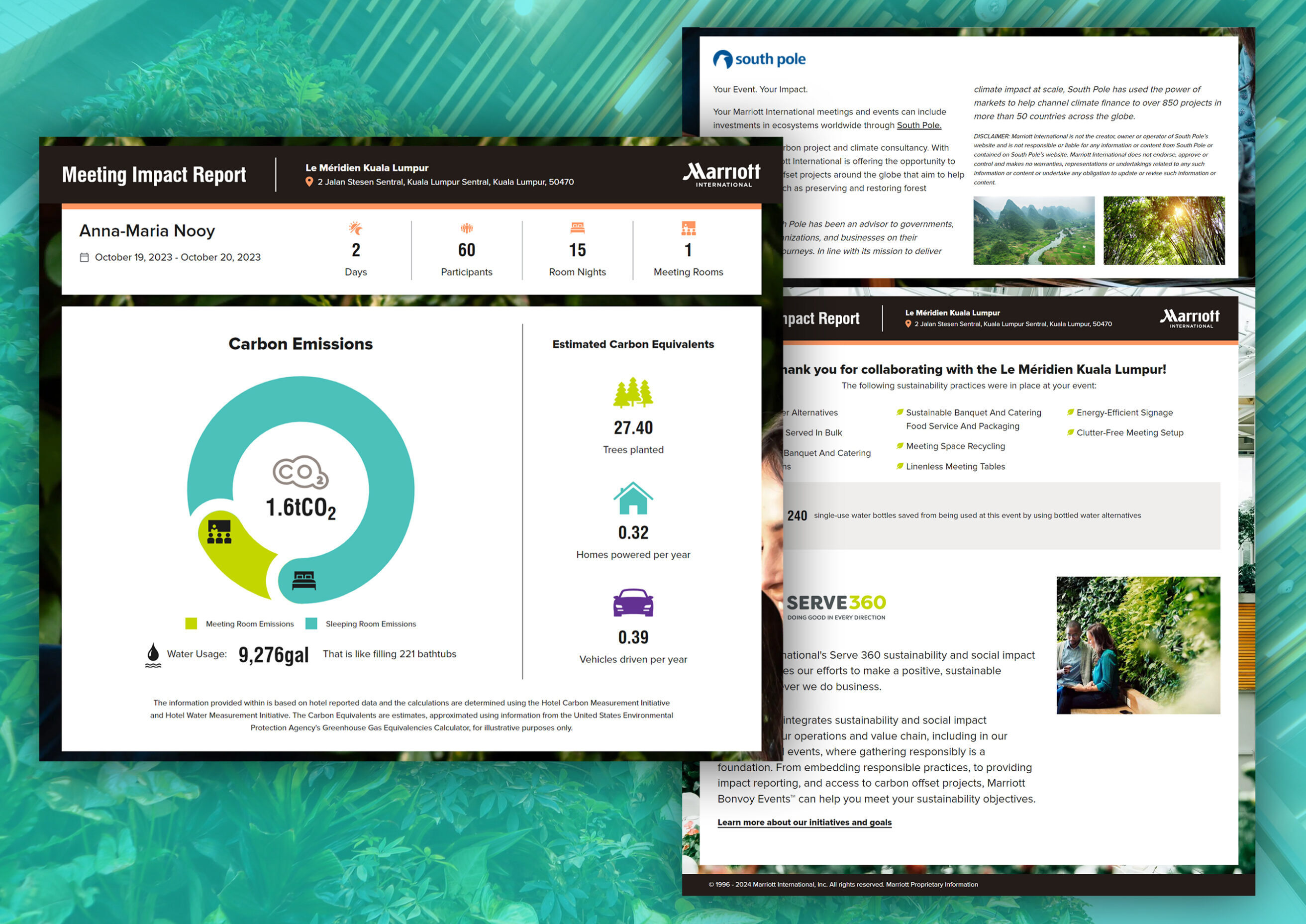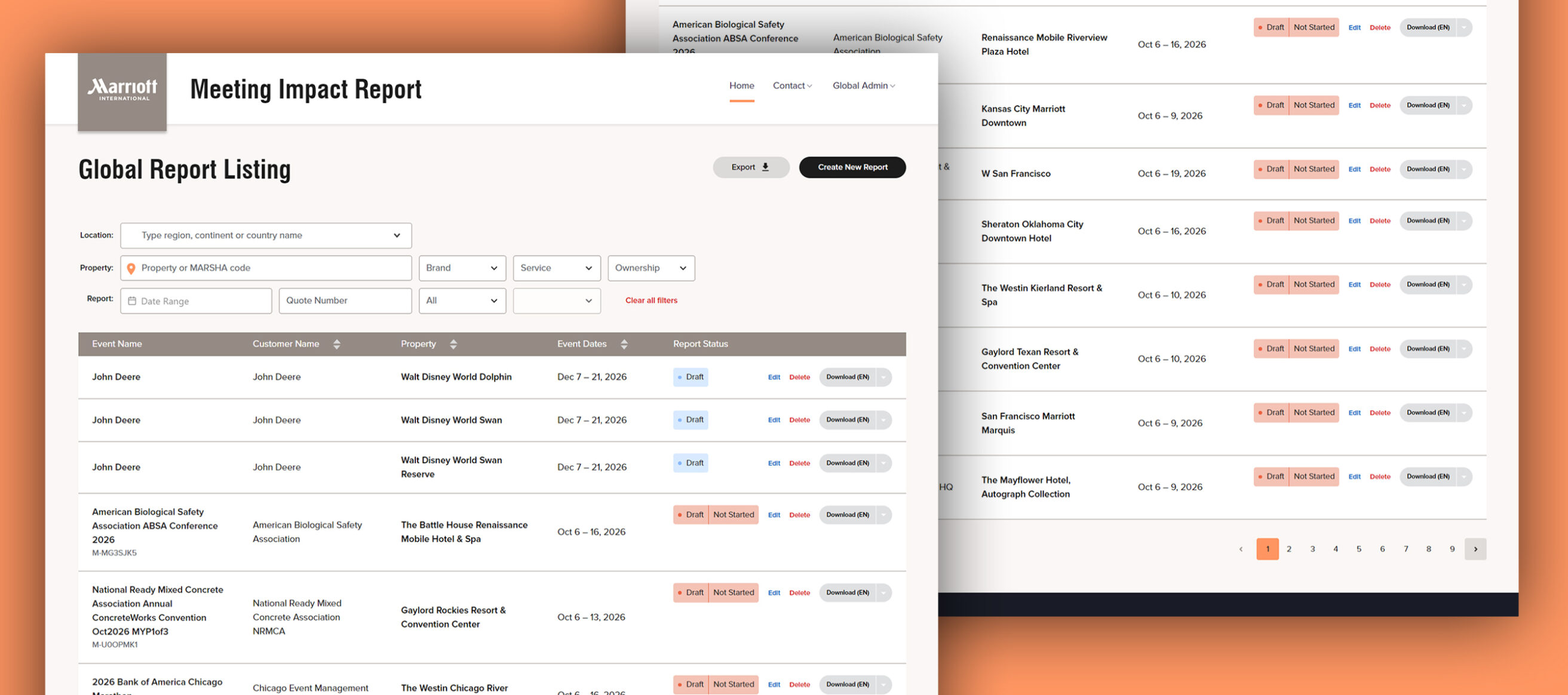The situation
We have worked with Marriott for 27 years. Specific to this project, we've been partnered with their sustainability department since 2008.
In 2024, the sustainability team reached out with an idea to modernize the Marriott Meeting Impact Report (MIR) we had first built for them as Starwood in 2012. The report would be used to quantify, report, and ultimately offset the carbon created from meetings and events hosted at their properties in a much more actionable way.
The challenge
Marriott meeting stakeholders wanted a more visible way to show their commitment to sustainability. The updated report needed to be more visual and simplified, and it had to connect directly to their carbon offset partner, SouthPole to make the process of helping the world and showing results seamless.
Our creative and engineering team members leveraged their combined years of experience and client knowledge to make it happen.

The solution
The new MIR, which launched in the fall of 2024, pulls event and meeting data from the Marriott catering system, hotel data from their property data catalog, and energy and water usage data from their utility partner. Once drawn together, the data is aggregated into an intuitive system that hotel associates can use to quantify and offset carbon generation through the SouthPole integration.
Right from the beginning, the MIR included eleven different language translations created using artificial intelligence (AI) to serve Marriott's global audience.
The results
The initial 700,000 meetings globally were slated to generate 3,000kg of carbon. With those meetings considered, the hypothetical carbon offset could amount to 2.1M metric tons! Now that these metrics are easier to digest, we are confident that more credits will be purchased, which will boost Marriott's reputation as a sustainable company.
For scale, the estimated carbon equivalents for 2.1M metric tons are listed out below.

The future
Our shared future will be full of exciting changes. As for the MIR that we built together, we are focused on watching the data continue to flow through it, ultimately improving people's lives.
Would you like to learn more about the MIR? Other coverage of its launch is below.